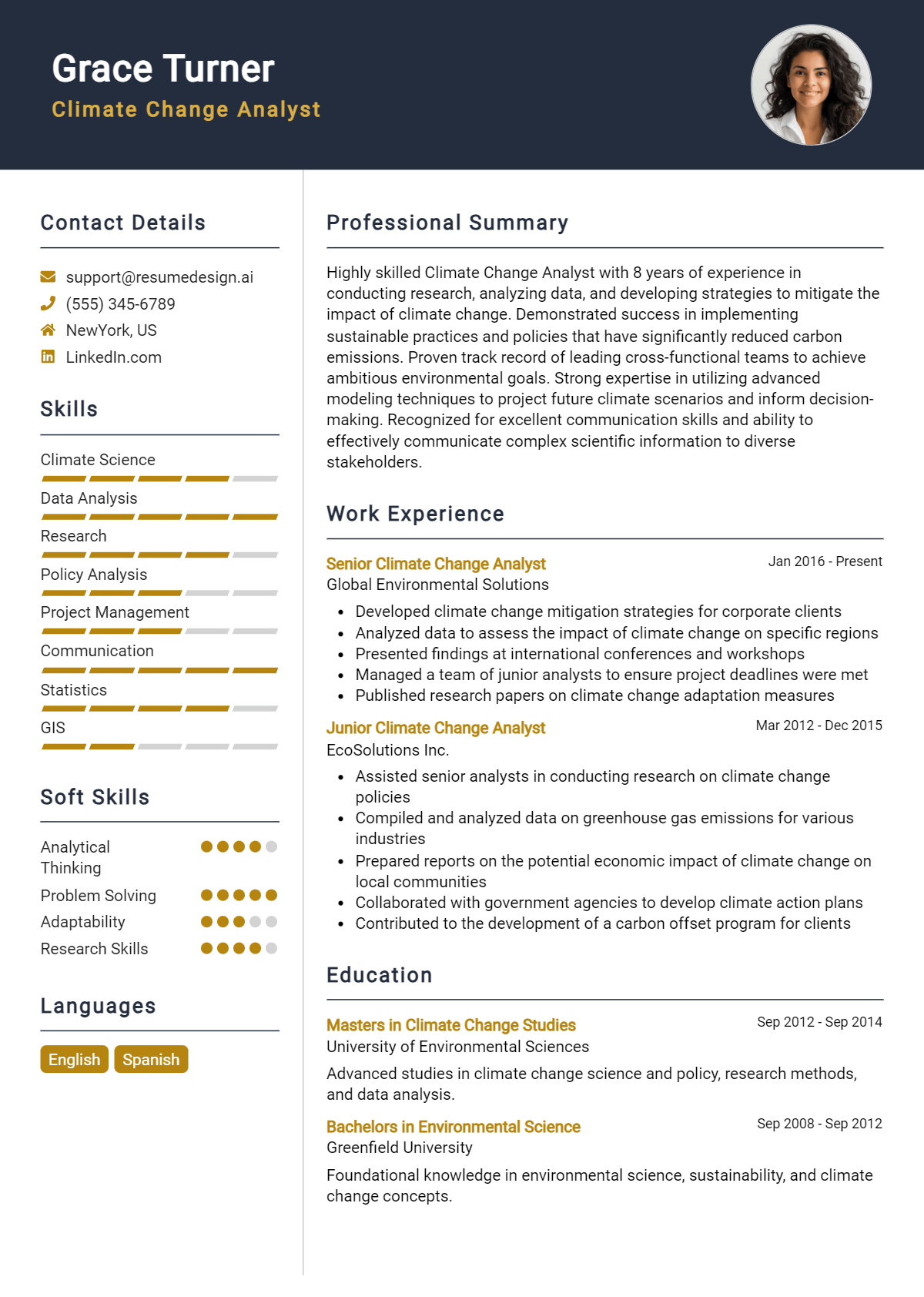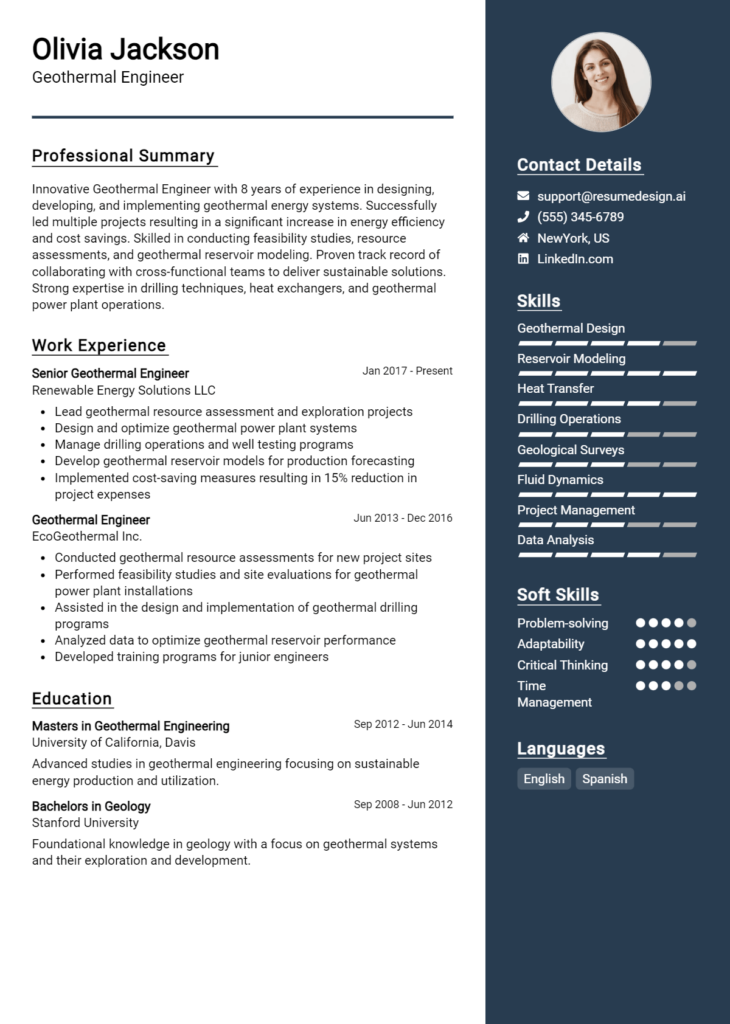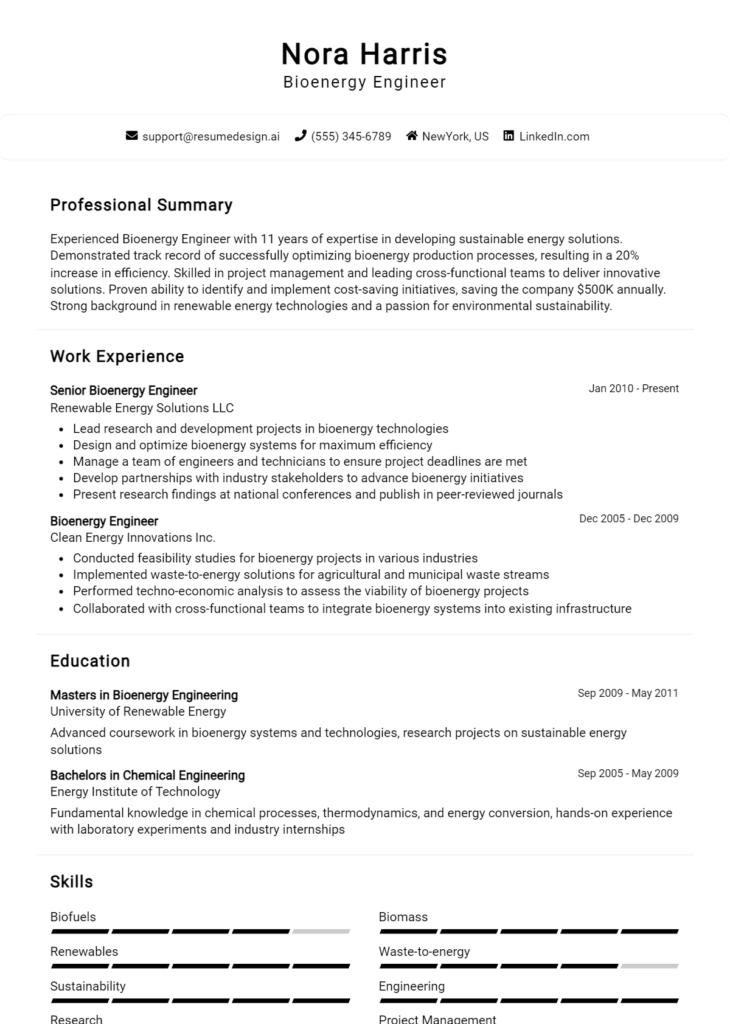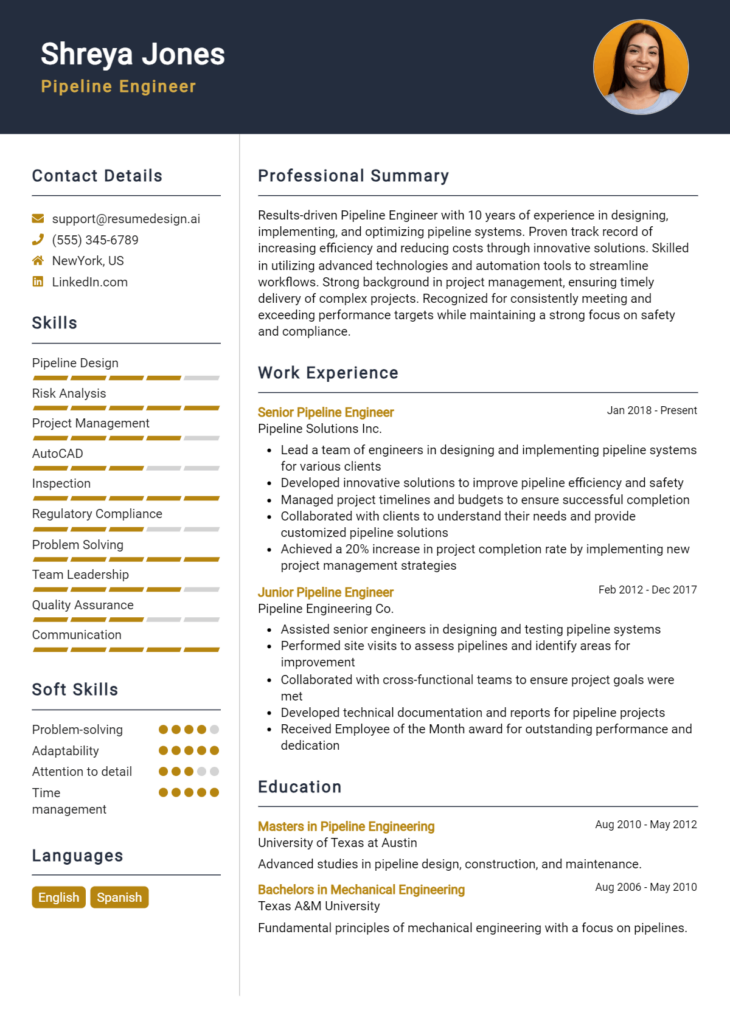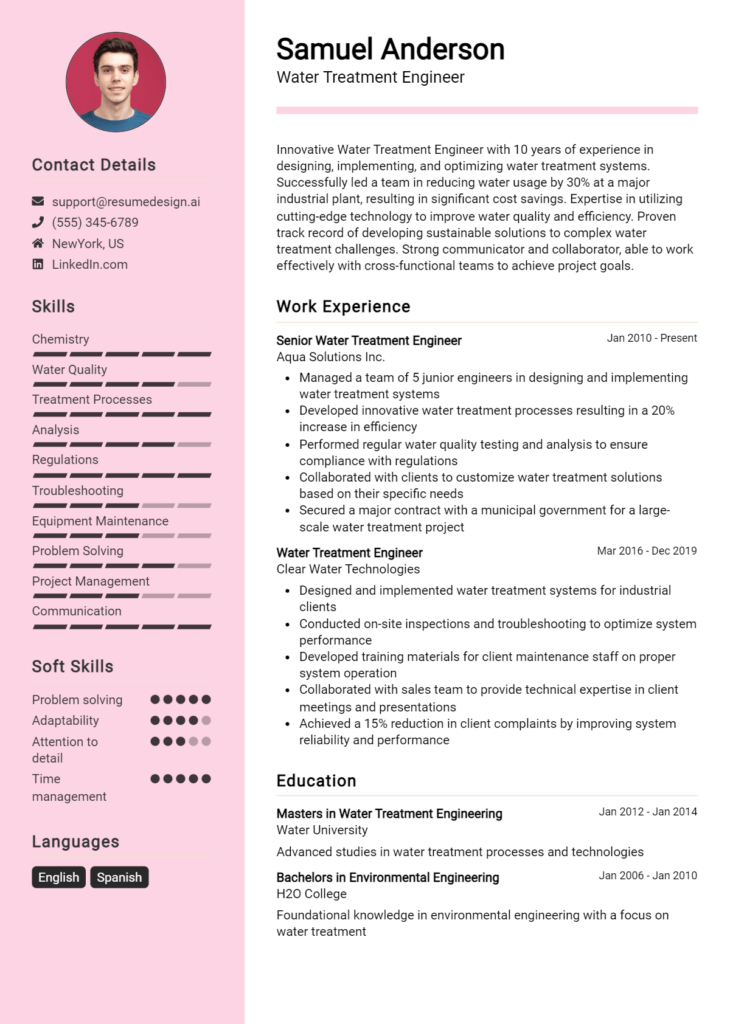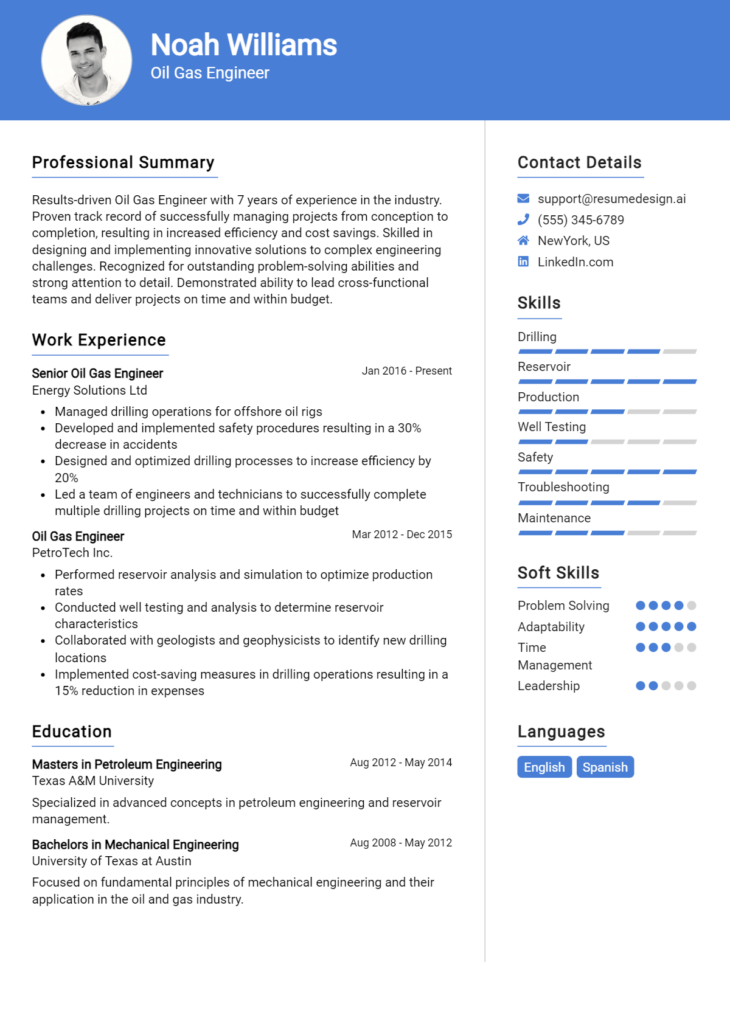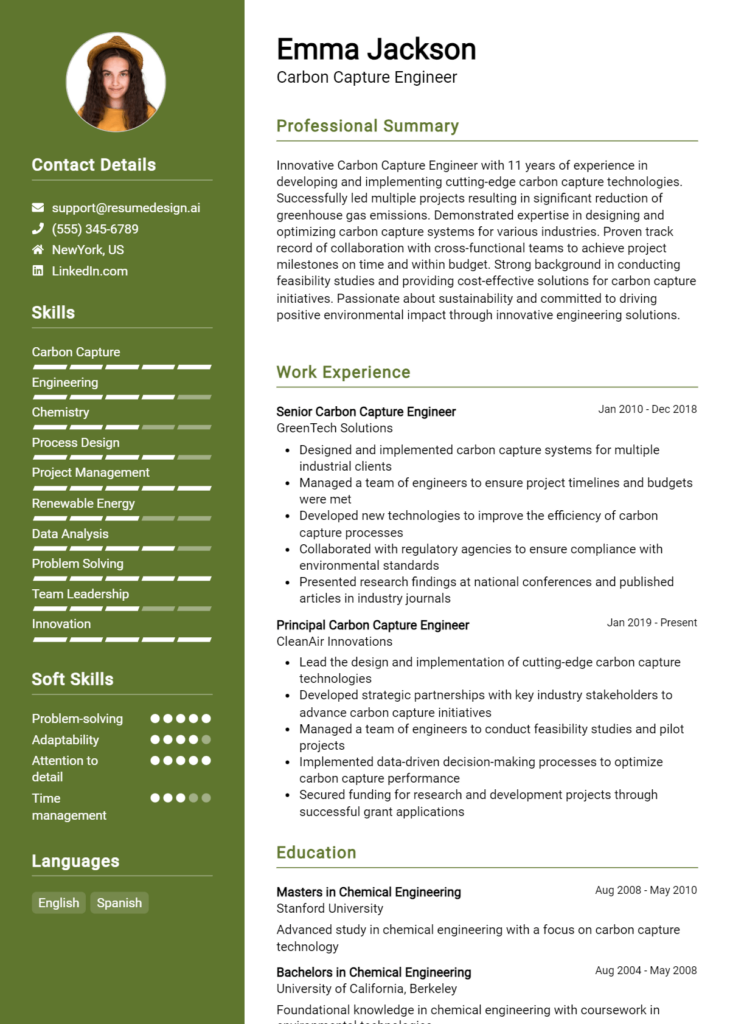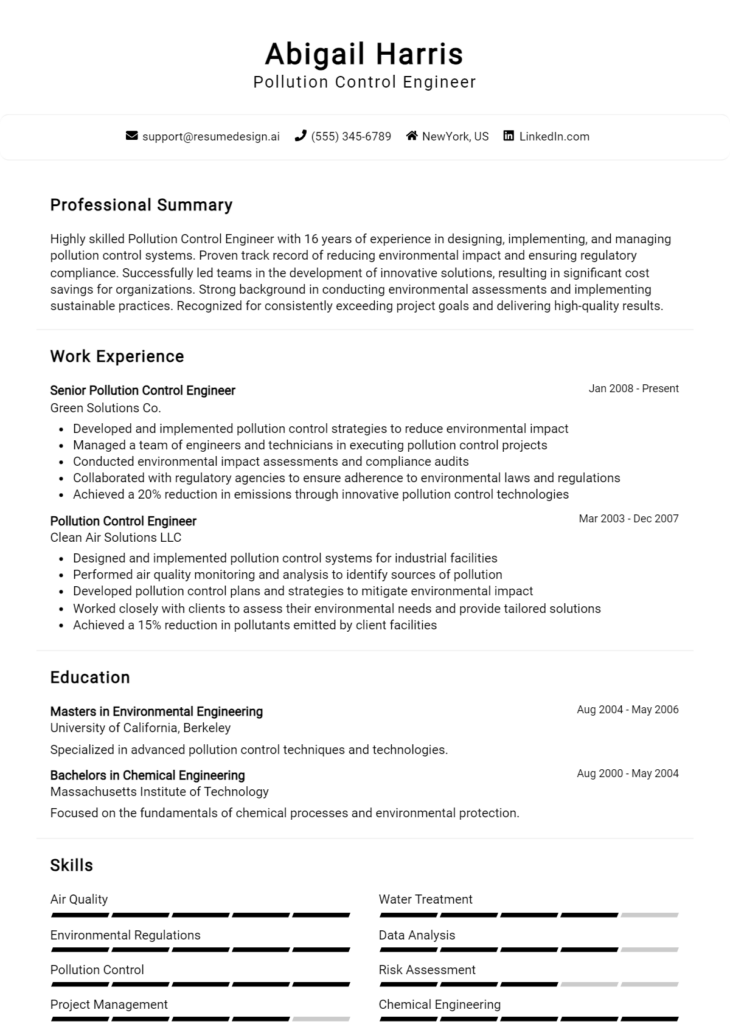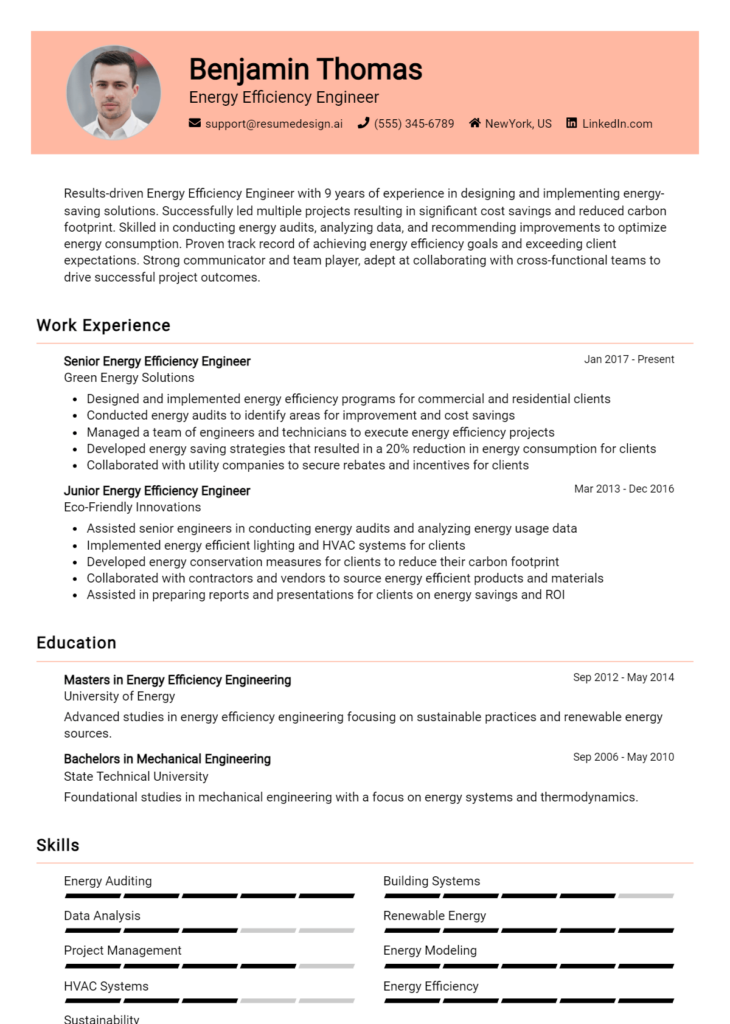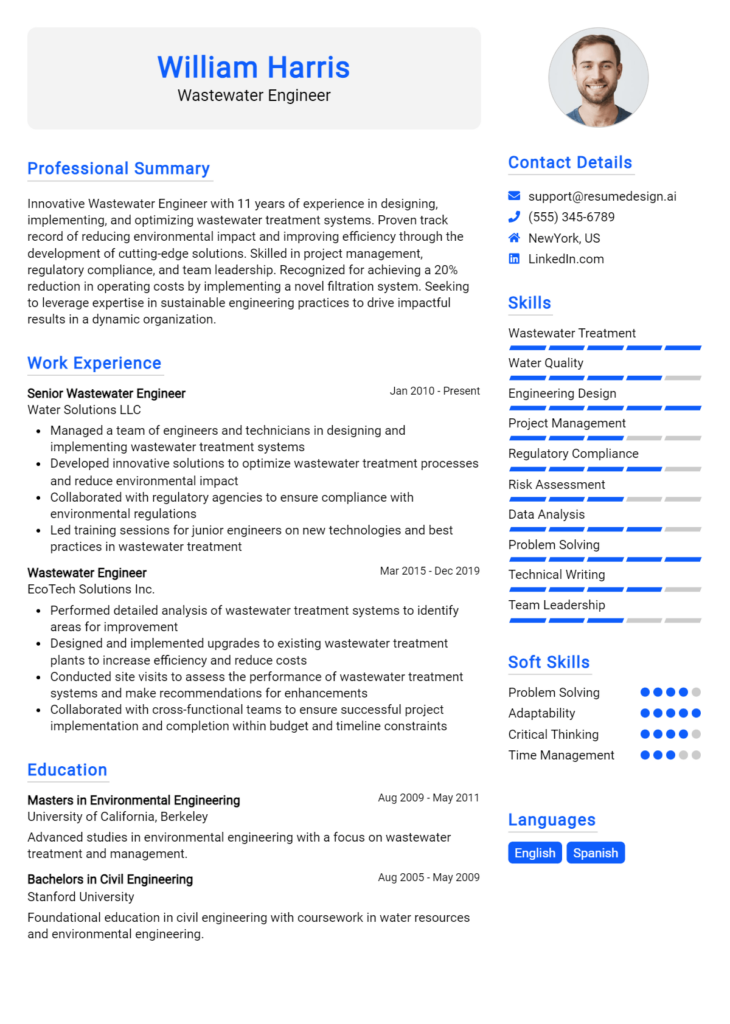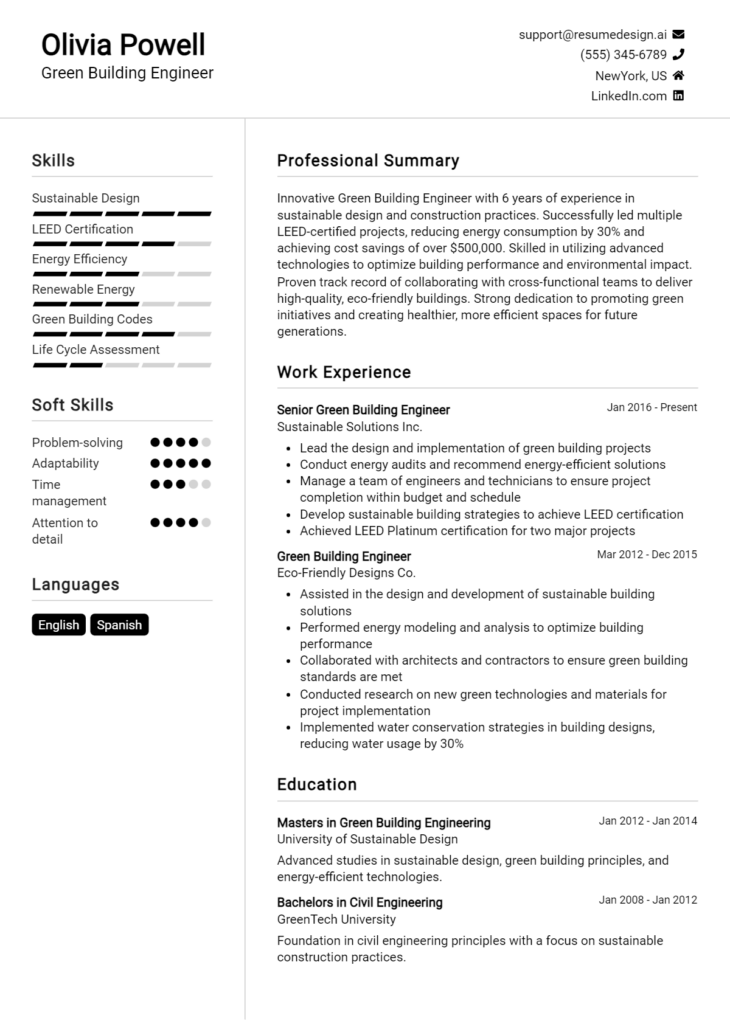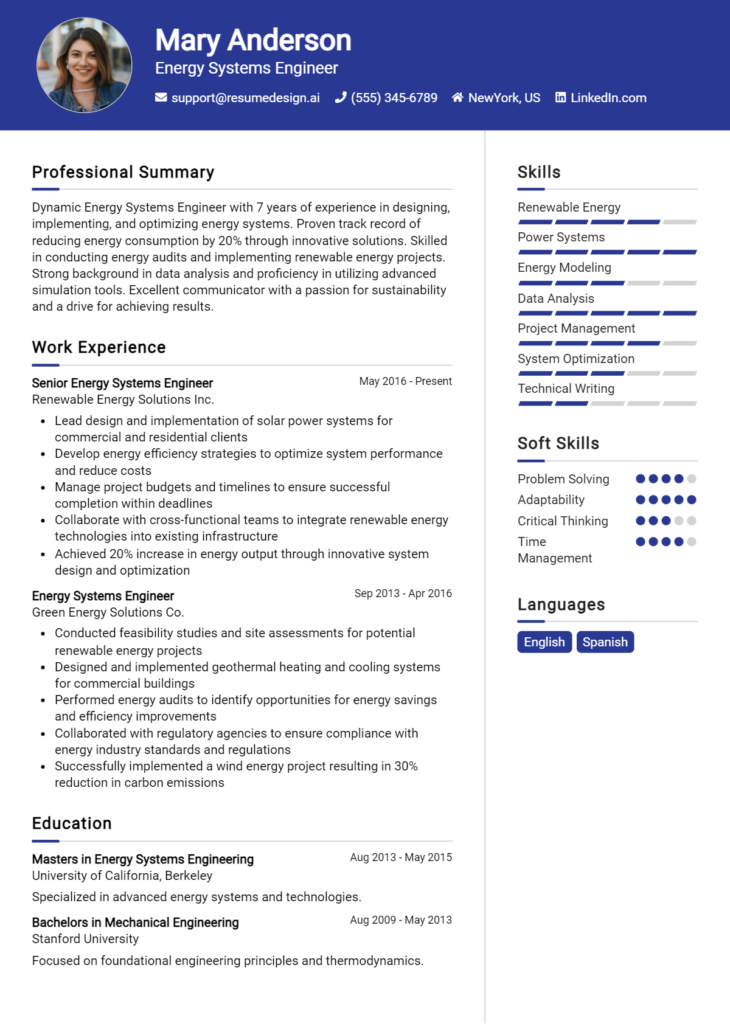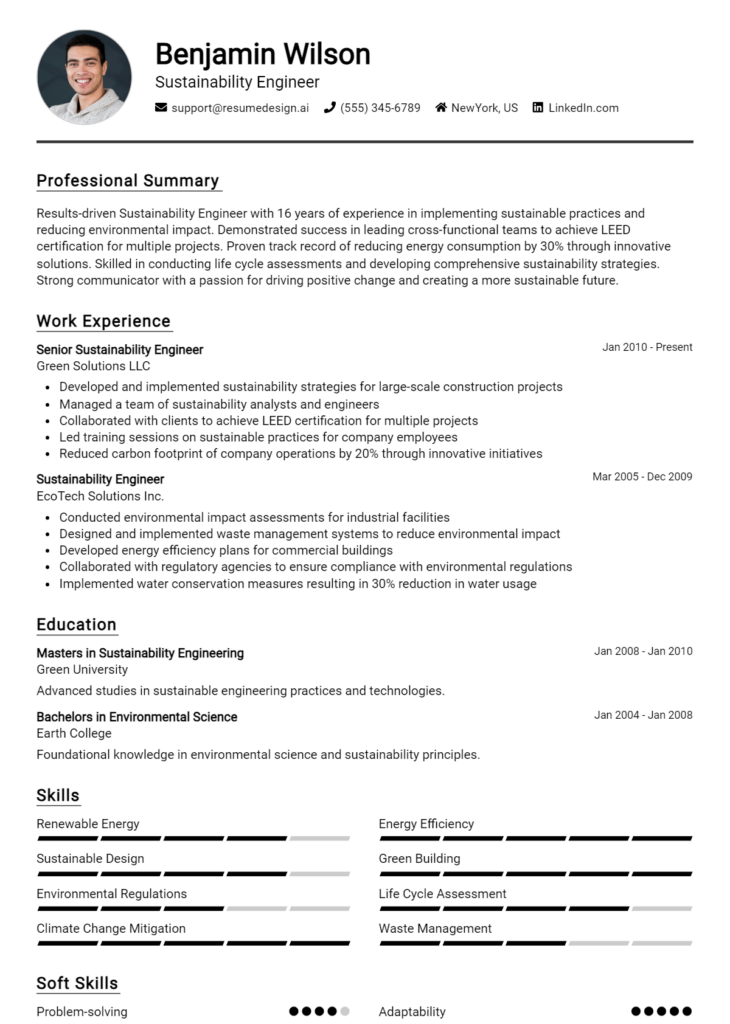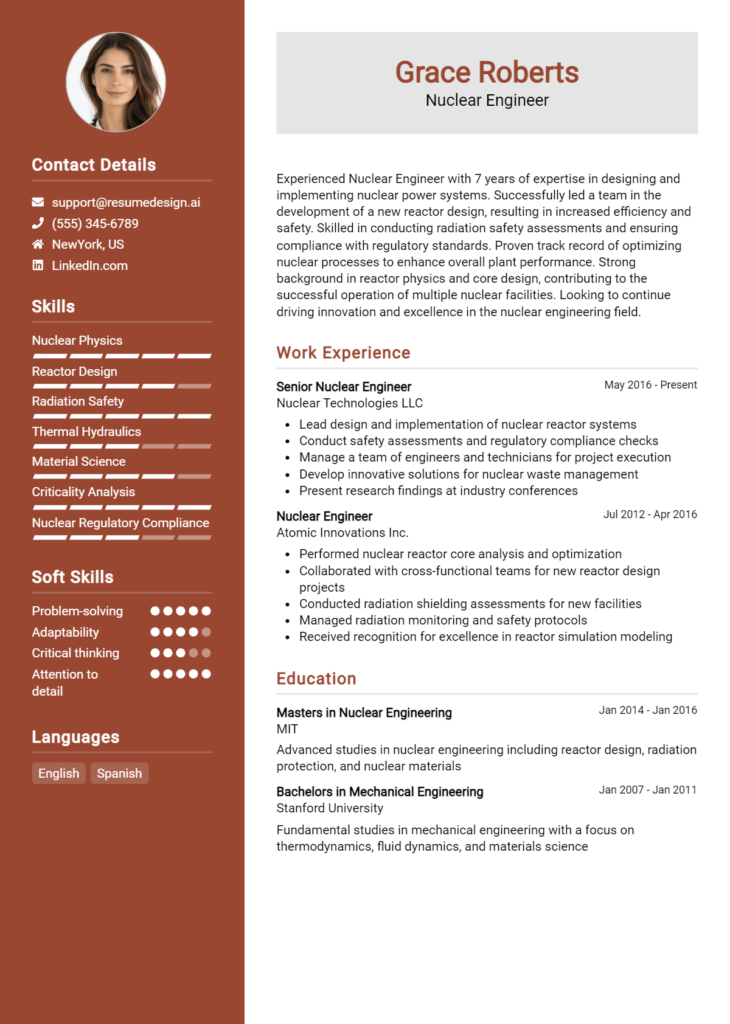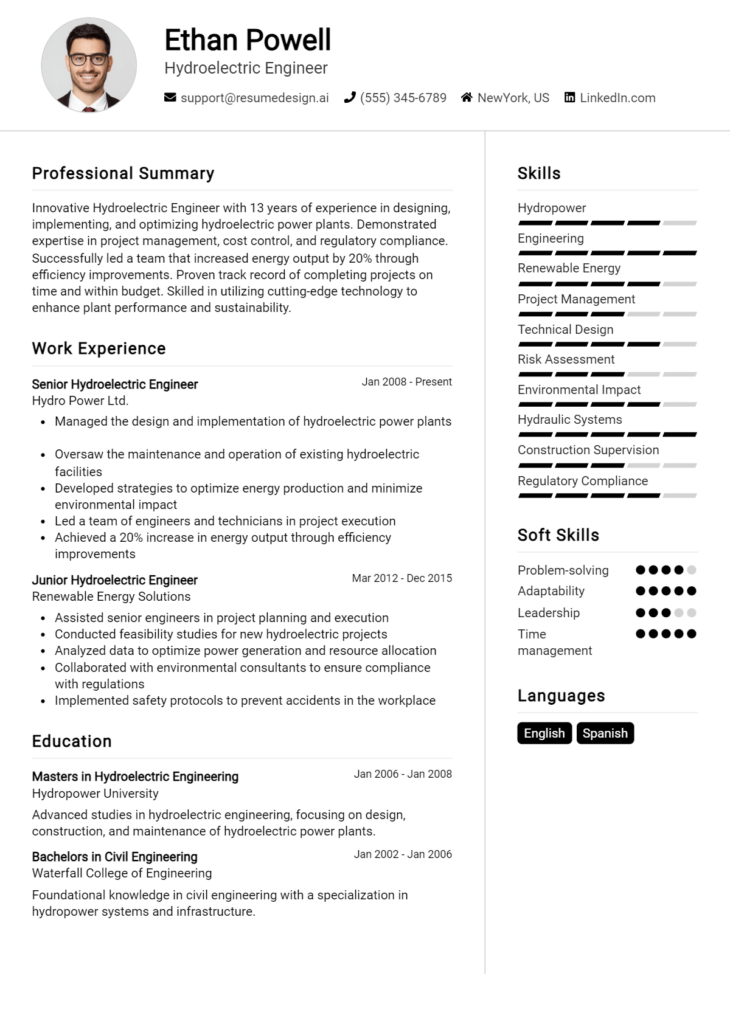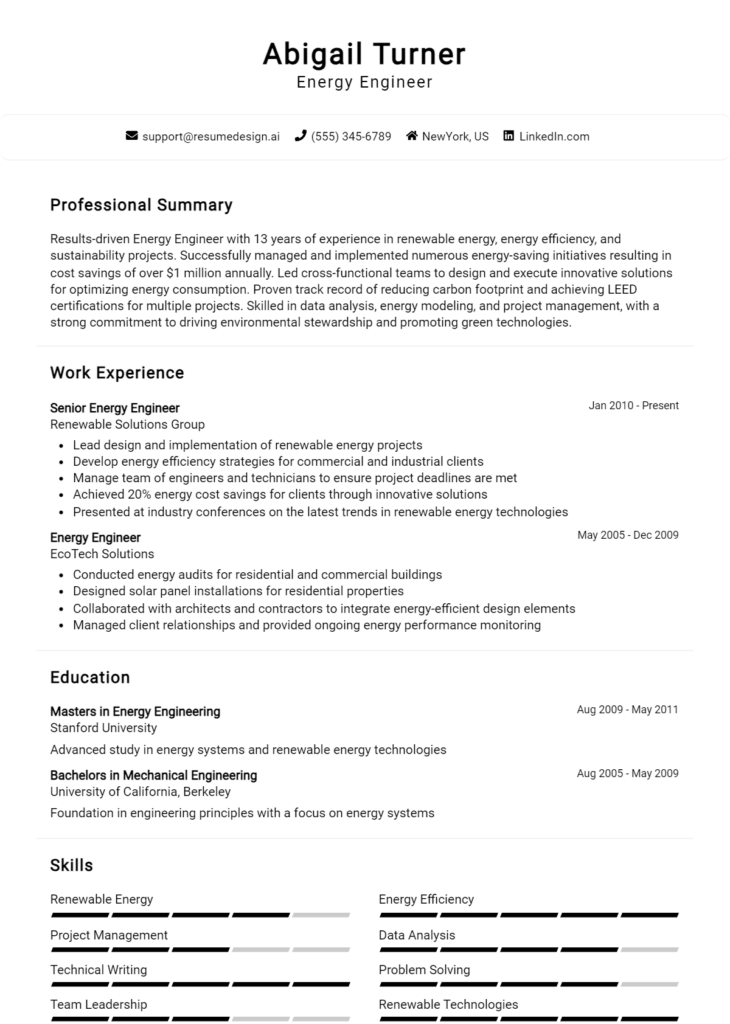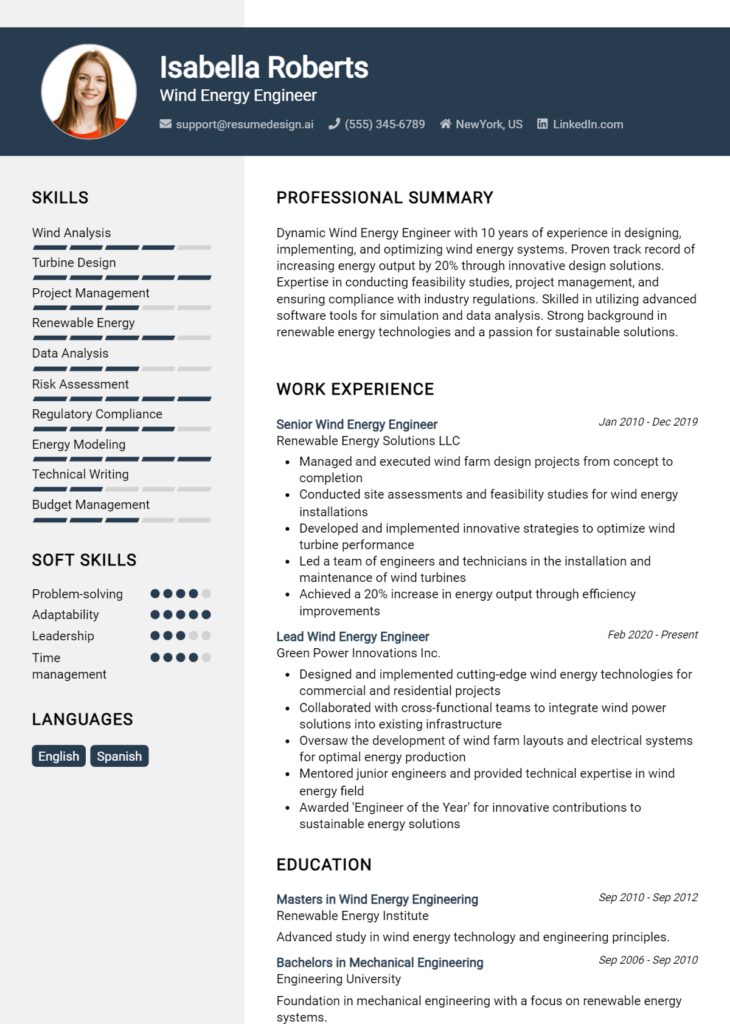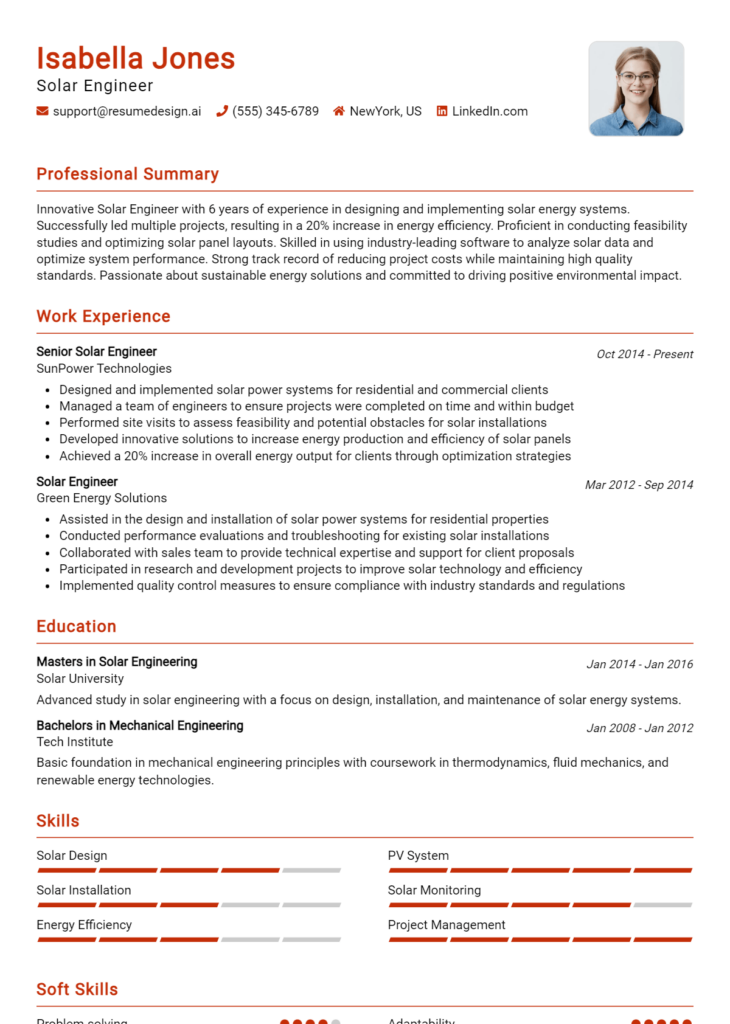Climate Change Analyst Core Responsibilities
A Climate Change Analyst plays a crucial role in assessing and mitigating the impacts of climate change by analyzing data and developing strategies that bridge environmental science with business operations. This position requires strong technical skills in data analysis, operational understanding of sustainability practices, and exceptional problem-solving abilities. Effective communication and collaboration across departments are essential to drive organizational goals, and a well-structured resume highlighting these competencies can significantly enhance job prospects in this vital field.
Common Responsibilities Listed on Climate Change Analyst Resume
- Conduct comprehensive climate impact assessments and data analysis.
- Develop and implement sustainability initiatives and programs.
- Collaborate with cross-functional teams to integrate climate strategies.
- Monitor and report on progress towards climate-related goals.
- Research and evaluate emerging climate policies and regulations.
- Provide insights and recommendations for risk management related to climate change.
- Prepare detailed reports and presentations for stakeholders.
- Engage in community outreach and education on climate issues.
- Utilize modeling tools to predict climate change scenarios.
- Support grant writing and funding proposals for climate projects.
- Stay updated on industry trends and scientific developments.
High-Level Resume Tips for Climate Change Analyst Professionals
In the competitive field of climate change analysis, a well-crafted resume is crucial for making a lasting first impression on potential employers. Your resume serves as a window into your professional capabilities, showcasing not only your skills but also your achievements in addressing one of the most pressing issues of our time. A strong resume can set you apart from other candidates by effectively communicating your expertise and passion for climate solutions. This guide will provide practical and actionable resume tips specifically tailored for Climate Change Analyst professionals, ensuring that your application stands out in a crowded job market.
Top Resume Tips for Climate Change Analyst Professionals
- Tailor your resume to match the job description closely, using keywords and phrases that align with the specific requirements of the position.
- Highlight your relevant experience in climate research, policy analysis, or environmental management to demonstrate your expertise in the field.
- Quantify your achievements with concrete data to illustrate the impact of your work, such as reductions in carbon emissions or successful project outcomes.
- Showcase industry-specific skills such as data analysis, environmental modeling, and proficiency in GIS software to highlight your technical capabilities.
- Include certifications or relevant training in climate science, sustainability practices, or environmental policy to enhance your qualifications.
- Utilize a clean and professional layout that emphasizes readability and organization, making it easy for hiring managers to find key information.
- Incorporate examples of collaboration with stakeholders, including governmental agencies, NGOs, and community groups, to demonstrate your ability to work in multidisciplinary environments.
- Make sure to emphasize your passion for climate action and sustainability, which can resonate with employers looking for candidates who are genuinely committed to the cause.
- Keep your resume concise, ideally one page, while ensuring all critical information is clearly conveyed and relevant to the role.
Implementing these tips can significantly increase your chances of landing a job in the Climate Change Analyst field. By presenting a targeted, achievement-oriented resume that reflects your unique skills and experiences, you can effectively convey your suitability for the role and your dedication to combating climate change. Remember, a well-structured resume not only showcases your qualifications but also demonstrates your commitment to making a positive impact in the world.
Why Resume Headlines & Titles are Important for Climate Change Analyst
In the competitive field of climate change analysis, a well-crafted resume headline or title plays a crucial role in capturing the attention of hiring managers. A strong headline serves as a powerful summary of a candidate's key qualifications, instantly conveying their expertise and relevance to the position. It should be concise, relevant, and tailored to the specific job being applied for, allowing candidates to stand out in a crowded applicant pool. By succinctly encapsulating their skills and experience, candidates can entice recruiters to delve deeper into their resumes, making a memorable first impression that enhances their chances of securing an interview.
Best Practices for Crafting Resume Headlines for Climate Change Analyst
- Be concise: Limit your headline to one impactful phrase that summarizes your qualifications.
- Be specific: Tailor your headline to the job description, using keywords that reflect the role of a climate change analyst.
- Highlight key strengths: Focus on your most relevant skills, experience, or accomplishments that align with the position.
- Use action-oriented language: Incorporate dynamic verbs or phrases that convey proactivity and expertise.
- Showcase your passion: Express your commitment to climate change issues to demonstrate alignment with the organization's mission.
- Avoid jargon: Use clear and understandable language to ensure your headline resonates with a broad audience.
- Prioritize relevance: Ensure your headline directly relates to the specific climate change analyst role you are pursuing.
- Update regularly: Revise your headline for each application to reflect the unique requirements of the job.
Example Resume Headlines for Climate Change Analyst
Strong Resume Headlines
"Data-Driven Climate Change Analyst with 5+ Years of Experience in Environmental Policy Development"
“Passionate Climate Analyst Specializing in Sustainable Development and Climate Adaptation Strategies”
“Expert in Climate Modeling and Impact Assessment with Proven Track Record of Successful Projects”
Weak Resume Headlines
“Looking for a Job in Climate”
“Analyst with Some Experience”
The strong headlines are effective because they are specific, relevant, and clearly communicate the candidate's qualifications and areas of expertise. They not only highlight key skills and experience but also align closely with the expectations of a climate change analyst role. In contrast, the weak headlines fail to impress due to their vagueness and lack of specificity, which do not provide hiring managers with any meaningful insight into the candidate's capabilities or passion for the field. A well-crafted headline can be the difference between being overlooked and being invited for an interview.
Writing an Exceptional Climate Change Analyst Resume Summary
A well-crafted resume summary is crucial for a Climate Change Analyst, as it serves as the first impression for hiring managers sifting through numerous applications. A strong summary not only captures attention but also succinctly highlights key skills, relevant experience, and notable accomplishments that align with the job requirements. By providing a concise yet impactful overview, candidates can effectively convey their value and make a compelling case for their candidacy. This tailored approach ensures that the summary resonates with the specific needs of the position they are applying for, setting the stage for a deeper review of their qualifications.
Best Practices for Writing a Climate Change Analyst Resume Summary
- Quantify Achievements: Use numbers and metrics to showcase the impact of your work.
- Focus on Relevant Skills: Highlight skills that are directly related to climate change analysis, such as data modeling, policy analysis, and environmental impact assessment.
- Tailor for the Job Description: Customize your summary to reflect the specific requirements and keywords in the job posting.
- Be Concise: Aim for 2-4 sentences that deliver your message clearly without unnecessary fluff.
- Showcase Relevant Experience: Include specific examples of past roles or projects that demonstrate your expertise in climate change issues.
- Highlight Certifications or Education: Mention any relevant degrees or certifications that enhance your qualifications for the role.
- Use Action-Oriented Language: Start with strong action verbs to convey your achievements and contributions effectively.
- Reflect Passion for Climate Issues: Convey your commitment to climate change advocacy and solutions in your summary.
Example Climate Change Analyst Resume Summaries
Strong Resume Summaries
Detail-oriented Climate Change Analyst with over 5 years of experience in developing sustainable policies and strategies, leading to a 30% reduction in carbon emissions for a major urban area. Proven track record in data analysis and environmental modeling, with a Master's in Environmental Science.
Results-driven Climate Change Analyst adept at leveraging data to inform policy decisions, with expertise in GIS and remote sensing. Successfully managed a project that improved energy efficiency in local governments, saving over $1 million annually in operational costs.
Dedicated Climate Change Analyst with a background in ecological research and a passion for climate resilience. Spearheaded a community outreach initiative that engaged 1,000+ residents in sustainability practices, resulting in a 25% increase in local recycling rates.
Weak Resume Summaries
Experienced analyst looking for a position in climate change. I have worked in various roles and have a general understanding of environmental issues.
I am passionate about climate change and want to help improve the environment. I have skills in analysis and research.
The strong summaries are effective because they provide specific achievements, relevant skills, and quantifiable results that demonstrate the candidate's impact in previous roles. They are tailored to the job of a Climate Change Analyst, making them compelling for hiring managers. In contrast, the weak summaries lack specificity, detail, and measurable outcomes, rendering them generic and less impactful. They fail to establish a connection between the candidate's experience and the job requirements, making it difficult for hiring managers to assess their fit for the role.
Work Experience Section for Climate Change Analyst Resume
The work experience section of a Climate Change Analyst resume is critical in demonstrating the candidate's qualifications and expertise in a rapidly evolving field. This section serves as a platform to showcase not only the candidate's technical skills but also their ability to manage teams and deliver high-quality results. By quantifying achievements, such as reductions in carbon emissions or successful project completions, candidates can effectively highlight their impact. Furthermore, aligning experience with industry standards ensures that the resume resonates with potential employers and meets the expectations of the climate change sector.
Best Practices for Climate Change Analyst Work Experience
- Use action verbs to convey initiative and impact in your responsibilities.
- Quantify results wherever possible, such as percentage reductions in emissions or cost savings.
- Highlight specific technical skills and tools used in projects, such as GIS or data analysis software.
- Demonstrate collaboration by mentioning cross-functional teams or partnerships with stakeholders.
- Align your experiences with industry standards and terminology to resonate with hiring managers.
- Focus on outcomes that demonstrate your ability to meet deadlines and manage projects effectively.
- Include relevant certifications or training that enhance your qualifications in the field.
- Tailor your experiences to match the job description, emphasizing the most relevant accomplishments.
Example Work Experiences for Climate Change Analyst
Strong Experiences
- Led a cross-functional team in a project that reduced greenhouse gas emissions by 30% over two years through innovative policy recommendations.
- Developed a comprehensive climate risk assessment tool that resulted in a 25% increase in stakeholder engagement and informed decision-making across multiple sectors.
- Successfully managed a $500,000 grant-funded project to implement sustainable agricultural practices, achieving a 15% increase in crop yields while lowering carbon footprints.
- Collaborated with local governments and NGOs to create a city-wide recycling initiative that increased recycling rates by 40% within one year.
Weak Experiences
- Worked on various climate change projects without specifying contributions or outcomes.
- Assisted the team in meetings and discussions related to environmental issues.
- Involved in data entry tasks for climate-related research projects.
- Participated in workshops and seminars about climate change topics.
The strong experiences listed above are considered effective because they clearly quantify achievements, demonstrate leadership and collaboration, and provide specific examples of technical skills applied in real-world scenarios. In contrast, the weak experiences lack detail and measurable outcomes, making it difficult to assess the candidate's impact and expertise in the field of climate change analysis.
Education and Certifications Section for Climate Change Analyst Resume
The education and certifications section of a Climate Change Analyst resume is crucial as it showcases the candidate's academic background and industry-specific qualifications. This section serves to highlight relevant degrees, specialized training, and certifications that demonstrate the candidate's expertise and commitment to continuous learning in the rapidly evolving field of climate science. By providing details on relevant coursework and recognized credentials, candidates can significantly enhance their credibility and align themselves with the expectations of prospective employers, illustrating their preparedness to tackle the challenges associated with climate change analysis.
Best Practices for Climate Change Analyst Education and Certifications
- Prioritize degrees in environmental science, climate studies, or related fields to demonstrate foundational knowledge.
- Include industry-recognized certifications such as LEED, GHG Inventory Quantifier, or Certified Climate Change Professional.
- Detail relevant coursework that aligns with climate modeling, data analysis, or environmental policy.
- Highlight any specialized training or workshops focused on climate change mitigation and adaptation strategies.
- Ensure clarity and relevance by listing only certifications and degrees that pertain directly to the role of a Climate Change Analyst.
- Update the section regularly with new qualifications or training to reflect ongoing professional development.
- Use clear headings and bullet points for easy readability and quick reference by hiring managers.
Example Education and Certifications for Climate Change Analyst
Strong Examples
- M.S. in Environmental Science, University of California, 2022
- Certified Climate Change Professional (CC-P), Association of Climate Change Officers, 2021
- Relevant Coursework: Advanced Climate Modeling, Environmental Policy Analysis, Geographic Information Systems (GIS)
- Professional Training: Climate Risk Assessment Workshop, International Institute for Sustainable Development, 2023
Weak Examples
- B.A. in English Literature, University of Michigan, 2010
- Certification in Basic First Aid, American Red Cross, 2020
- Online Course: Introduction to Gardening, Coursera, 2021
- Diploma in Business Management, Online Institute, 2015
The examples provided illustrate the distinction between strong and weak educational qualifications and certifications for a Climate Change Analyst. Strong examples are relevant to the field, showcasing advanced degrees and recognized certifications that align with the demands of the role. In contrast, weak examples consist of degrees and certifications that do not pertain to climate science or analysis, diminishing the candidate's credibility and suitability for the position.
Top Skills & Keywords for Climate Change Analyst Resume
As a Climate Change Analyst, possessing the right skills is crucial for effectively addressing the multifaceted challenges posed by climate change. A well-crafted resume should highlight both hard and soft skills that demonstrate your ability to analyze data, communicate findings, and collaborate with diverse teams. These skills not only showcase your expertise but also your commitment to developing sustainable solutions. Employers look for candidates who can adapt to changing circumstances and offer innovative approaches to pressing environmental issues. By incorporating relevant skills into your resume, you can significantly enhance your appeal in this competitive field.
Top Hard & Soft Skills for Climate Change Analyst
Soft Skills
- Critical thinking
- Effective communication
- Problem-solving
- Team collaboration
- Adaptability
- Project management
- Time management
- Attention to detail
- Interpersonal skills
- Creativity
- Research skills
- Empathy
- Negotiation skills
- Networking abilities
- Conflict resolution
Hard Skills
- Data analysis and interpretation
- Geographic Information Systems (GIS)
- Environmental modeling
- Statistical software proficiency (e.g., R, Python)
- Climate policy knowledge
- Sustainability assessment
- Risk assessment techniques
- Report writing
- Excel and data visualization tools
- Remote sensing technologies
- Field research methodologies
- Climate change mitigation strategies
- Renewable energy systems knowledge
- Environmental impact assessments
- Knowledge of regulatory frameworks
For a comprehensive guide on how to effectively present your work experience and skills, consider tailoring your resume to emphasize these key areas.
Stand Out with a Winning Climate Change Analyst Cover Letter
Dear [Hiring Manager's Name],
I am writing to express my interest in the Climate Change Analyst position at [Company Name] as advertised on [where you found the job posting]. With a Master’s degree in Environmental Science and over five years of experience in climate research and data analysis, I am excited about the opportunity to contribute to your team. My academic background, combined with my hands-on experience in assessing climate impacts and developing mitigation strategies, makes me a strong candidate for this role.
In my previous position at [Previous Company Name], I successfully led a project analyzing the socio-economic impacts of climate change on local communities. This involved collecting and interpreting large datasets, developing predictive models, and presenting findings to stakeholders. I collaborated closely with interdisciplinary teams to ensure our recommendations were grounded in solid research and aligned with local policies. My ability to communicate complex scientific concepts to non-expert audiences was crucial in fostering community engagement and support for our initiatives.
I am particularly drawn to [Company Name] because of your commitment to innovative solutions in the fight against climate change. I admire your recent projects, such as [specific project or initiative], and I am eager to bring my skills in data analysis and project management to help advance your mission. I am confident that my proactive approach, analytical mindset, and dedication to sustainability will make a valuable contribution to your team.
Thank you for considering my application. I look forward to the opportunity to discuss how my background and passion for environmental issues align with the goals of [Company Name]. I am excited about the possibility of contributing to your important work in addressing climate change and fostering a more sustainable future.
Sincerely,
[Your Name]
[Your Contact Information]
Common Mistakes to Avoid in a Climate Change Analyst Resume
A well-crafted resume is crucial for a Climate Change Analyst to stand out in a competitive job market. However, there are several common mistakes that candidates often make, which can hinder their chances of landing an interview. Understanding these pitfalls can help you create a more effective resume that showcases your expertise and passion for addressing climate issues. Below are some key mistakes to avoid:
Generic Objective Statements: Using a vague objective statement can make your resume blend in with others. Instead, tailor your objective to reflect your specific interest in climate change analysis and how you can contribute to the organization’s goals.
Lack of Quantifiable Achievements: Failing to include metrics or specific accomplishments can weaken your resume. Use data to highlight your contributions, such as reducing carbon emissions by a certain percentage or successfully managing a project within a budget.
Ignoring Relevant Skills: Not emphasizing relevant technical skills, such as data analysis tools or knowledge of climate modeling software, can be a missed opportunity. Ensure you list all pertinent skills that align with the job description.
Overly Complex Language: Using jargon or overly technical language can make your resume difficult to read. Aim for clarity and conciseness, ensuring that your expertise is easily understood by hiring managers.
Inconsistent Formatting: A resume with inconsistent formatting can appear unprofessional. Use a clean, organized layout with uniform font sizes and bullet points to enhance readability.
Neglecting Soft Skills: While technical skills are crucial, overlooking soft skills like communication, teamwork, and problem-solving can be detrimental. Highlight how these skills have contributed to your success in collaborative projects.
Omitting Continuing Education: Climate change is an evolving field. Not mentioning any recent certifications, courses, or workshops can suggest a lack of commitment to staying current. Be sure to include ongoing education relevant to climate science and policy.
Not Tailoring for Each Job Application: Sending the same resume for multiple job applications can be ineffective. Customize your resume for each position to reflect how your experience and skills specifically meet the needs of each employer.
Conclusion
As a Climate Change Analyst, your role is crucial in assessing the impacts of climate change and developing strategies to mitigate its effects. Throughout this article, we have discussed the essential skills and qualifications necessary for success in this field, such as data analysis, environmental policy knowledge, and strong communication capabilities. We also highlighted the importance of staying current with climate science and policy developments to effectively contribute to sustainability efforts.
Given the competitive nature of this field, having a well-crafted resume is vital. It's essential to showcase your expertise and experience in a way that stands out to potential employers. Take the time to review your Climate Change Analyst resume and ensure it reflects your qualifications accurately.
For those looking to enhance their resumes, there are valuable resources available to assist you. Consider utilizing resume templates to create a polished document that captures your professional journey. If you need guidance on formatting and content, a resume builder can simplify the process. Additionally, review resume examples to gather inspiration and see how others in your field present their skills and experiences. Finally, don’t overlook the importance of a compelling cover letter; explore our cover letter templates to complement your application.
Take action now—revise your resume and leverage these tools to position yourself as a strong candidate in the vital field of climate change analysis. Your contributions can make a significant difference in combating climate change and promoting a sustainable future.

